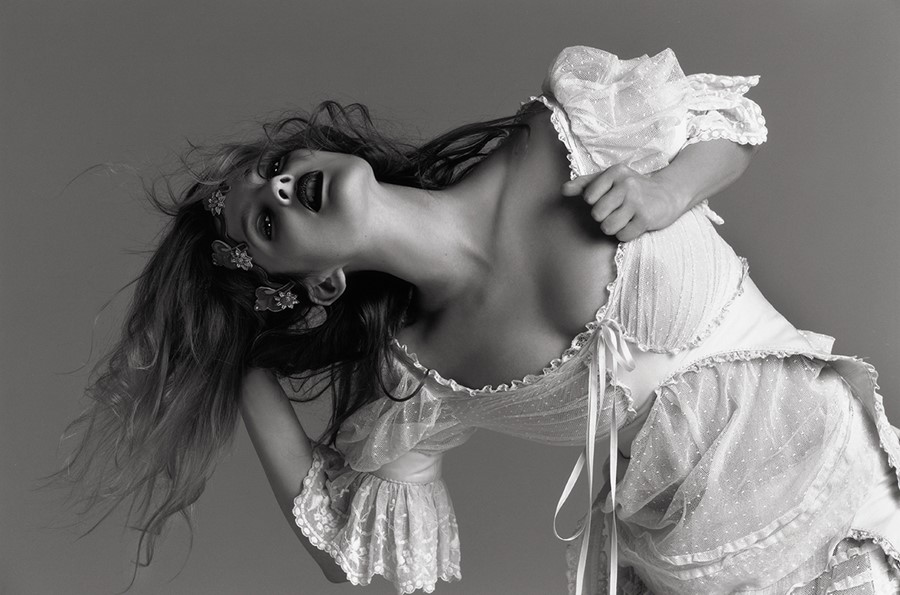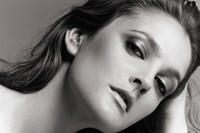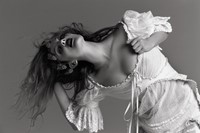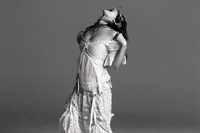Alongside a luminous cover shoot by Inez and Vinoodh, Drew Barrymore talks politics, quantum physics and growing up in this interview from AnOther S/S05
Drew Barrymore turns to face the future as she reaches thirty this month. Drew was the child actor photographed asleep in a fog of smoke after-hours at Ma Maison, the eight-year-old who had her own entry-card to Studio 54. As the world watched, Drew Barrymore took all the hits, the hardest before she was old enough to drive. But it doesn’t always turn out like the movies. And yesterday’s wild-child on the road to burn-out is today’s Hollywood star of over 50 films. She is an actor with a string of big-budget roles as the girl-next-door, a producer whose company took a gamble on a script by an unknown 25-year-old. In that film, Richard Kelly’s Donnie Darko, she played an English teacher with a sharp eye and a wise word. “Sit next to the boy you think is cutest,” she tells the new girl. Of course. Here, in an interview snatched during an afternoon downtown in New York and with her pom-poms out for quantum physics, Drew Barrymore talks politics and democracy in America’s political landscape, and tells us why it’s mean to pick flowers.
Another Magazine: So I hear you’re into Quantum Physics?
Drew Barrymore: In other words, ‘you're an ass-hole’. But yes, lately I've been opened to the ‘beautiful world’ of quantum physics. My boyfriend and his father are very well versed in it and I've always heard them speak about it. I was either a little bored or disinterested or I just felt kind of stupid. And then I saw this film called What the (Bleep) Do We Know?
What was it about this film that inspired you?
You know when you read a line in a book and it perfectly encapsulates how you feel about something and you just get so excited because someone has expressed something that you haven't been able to put into words? That's how I felt about this film. The way it explains how the universe works or the science of things or God… most of all I was amazed that it spoke so much about perception. If it's possible that everything exists purely in our perception is such a crazy, druggie, interesting, like intimidating-yet-setting-you free kind of thought.
So the point is that what you think is reality is really just your own made up version?
Yes, that you could be creating all of this. There is something very empowering about the idea that you are the conductor of your own destiny.
Even if it's all just in your mind?
But it goes beyond that. One man in the film did this experiment where he put words onto containers of water. The water, viewed under the microscope, responded to positive words-formed these crystalline, snowflake formations. And when he put a negative word on the container, under the microscope the water molecules actually looked like they were corroding. We as human beings are 90 per cent water. After seeing this film I felt I had this weird ability to control the chemistry of my emotions. So I've got my pom-poms out for quantum physics right now.
Give me a Q! But don't you think part of your enthusiasm stems from the fact that someone, in this case the director of the film, was able to present this complicated theory to you in a language that you understood and could connect to.
Absolutely.
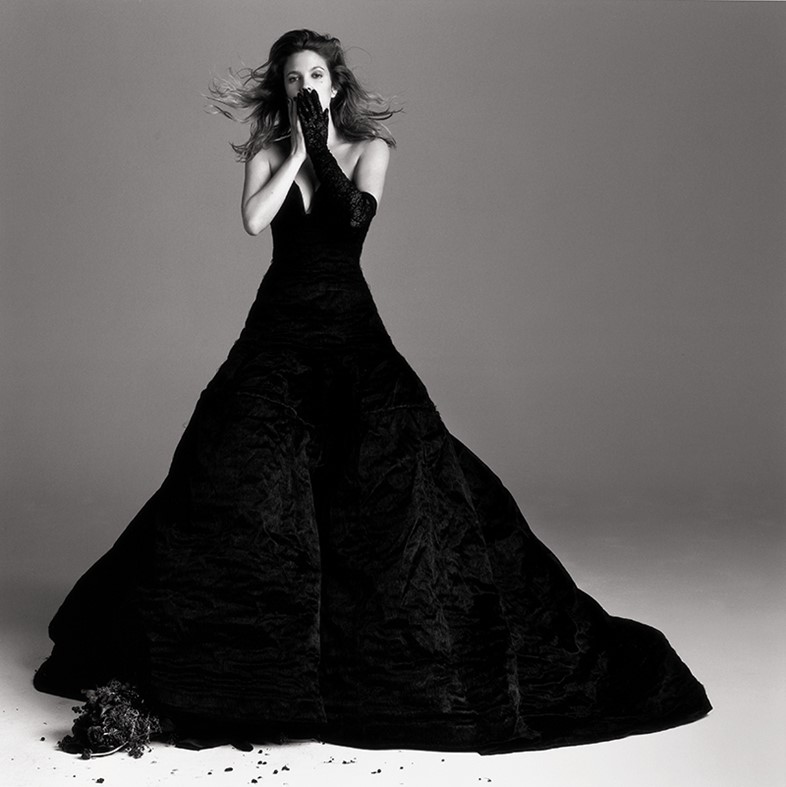
Was this something you experienced when you were making your political documentary. As far as being able to speak about politics in a language that a lot of young people would understand and giving them a way to connect to it so that it wouldn't seem so abstract.
Yes, quantum physics and politics are definitely two things I really knew nothing about and couldn't enjoy a conversation about. I still don't feel like I'm any aficionado but I'm much more inclined to get involved and learn more and participate, instead of just sitting back and feeling like the dumb one at the table. Because I think that ignorance can make you shy. I understand politics much more now even if it still feels like knives in my organs.
With this documentary you really were the conductor of your own reality, in a sense.
I’d never directed before. I didn't know the documentary world and I didn't know politics – so it was three things that scared the living shit out of me. Filmmaking and directing were two things I loved and always wanted to do.
I understand you had a very hard time being taken seriously through the entire process. There were nasty stories being published saying ‘Angel Get off the Bus’.
Absolutely. And that always felt like a good excuse to quit but I knew that I would hate myself for that. Instead I used the criticism as a strength. But then politics is deliberately set up to make people feel stupid. It was amazing to discover how much of the set rhetoric you get when you ask questions. I didn't realise this until I started editing and molding segments to show how politicians really just appease-there's a stock answer for every question. Politics is about them and voting is about you. That was my real revelation. Because they are on television, because they're up on a podium, because they’re in positions of power, our perception of them is that they’re untouchable. And when you’re in the room with them you realise they are just like everybody else and there's something sort of sad about that.
But as both the director and the editor of the film you really had the chance to manipulate people's perceptions.
There is a lot of power in the editing room. You can skew everything to be negative and make anyone seem either really stupid or really smart. I couldn't believe how scary that power was and I did everything not to abuse it, because a few cuts here and there… When you're editing a film you're just trying to stick with the story, but with documentary you are creating your story in the editing room.
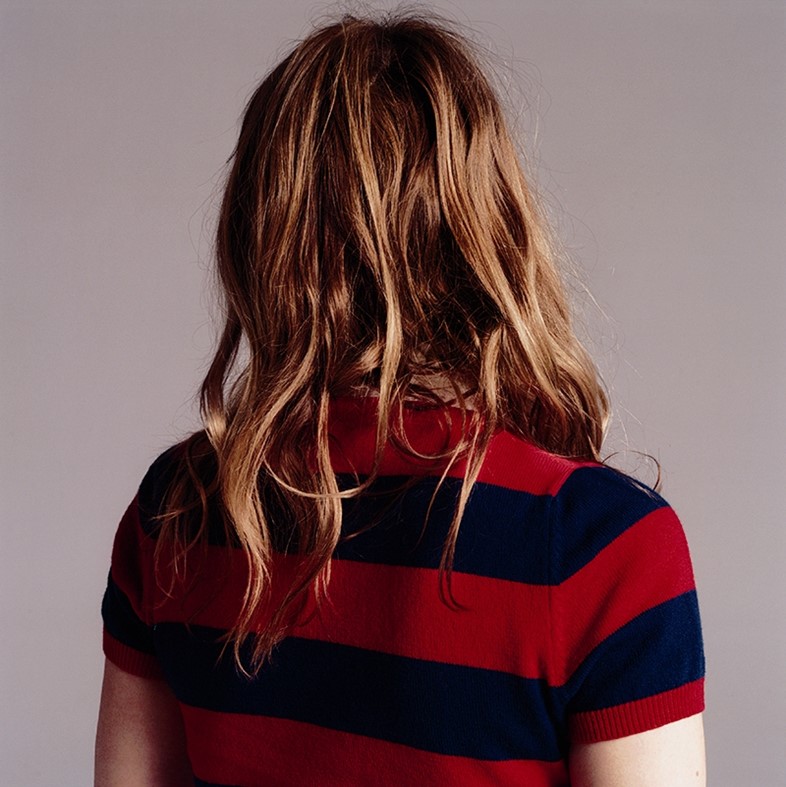
Did you find that you could be objective in any sense?
I was sort of lucky to have myself as the one who in the could be the emotional clown or the stupid person in the room and not have to pin that on other people.
Was that a difficult position to be in? To make yourself vulnerable like that?
Not at all, not even one bit. I entered into it with nothing but the honest notion that I wanted to learn. I hated that I felt so stupid and that I didn't really know what I was doing and I was trying to take on all these different tasks without ever having done them before. But then there were also moments of such inspiration and enlightenment, hearing people's stories that made me feel like my pain was nothing in comparison to what other people have gone through. I've never felt so sick in my stomach ever making a film as I felt like this time. I don't know why. I just felt like this was all on me, even though I had this amazing group of people I was working with – you certainly don't do anything alone – but I felt like, man would I let myself down if I fuck this up.
You've been producing films for what, ten years now?
I was 19 when I started my company. I didn't know shit about producing. I really didn't. And my partner Nan and I were like let's go to school, let's learn. Let's not fuckin' socialize at parties in Hollywood. We just tried to learn what it was we loved about movies and filmmaking. We didn't want big deals in Hollywood for our company, we wanted to prove that we could do it and earn the right to it.
And how did you ultimately select the projects that you decided to work on?
We adapted books at first and spec scripts and just tried to find our way until we figured there was really a story we knew exactly how to make, that we wanted to make, that we wanted to spend a year, two years, pounding the pavement for, and then we finally found it with this script Never Been Kissed. We just really got that story – how you feel so awkward in what you think is a cool world and what is that really all about?
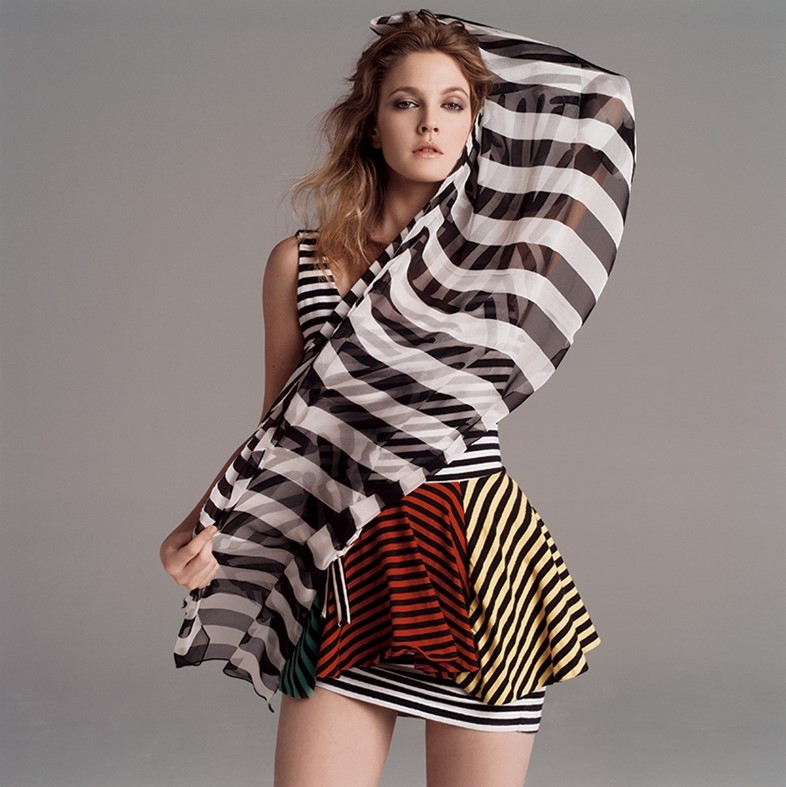
This may seem like a stretch here, but if you think about it there are similarities between that film and Dostoyevsky's The Idiot, which I understand you’re reading right now. The disconnection between the world you live in and the world in your head. That whole gap in perception thing?
I'm only 100 pages into the book. I've got 400 to go! But there is a sweetness about that character in The Idiot, like he's the sanest person in the room. He's just being honest and heartfelt and everyone is scrutinizing him because they feel like they have to. I don't see that about myself though. I don't think I'm smarter just because I'm more heartfelt. I do feel like an idiot a lot of the time. I definitely feel like the court jester to all the royals for sure.
Is that a defence mechanism? Or a coping mechanism?
I like looking up rather than looking down or at even level. There's a beautiful theory called animism, to believe that everything has a soul. I'm the girl who thinks the elevator is waiting for me. I feel guilty when I eat the carrot or when I pick a flower. I have that weird silly brain that just thinks about all that shit and appreciates the beauty of the supermarket aisle – how that is art in itself. I love trying to find the beauty, and the reason, and give the credit to everything around me.
Have you always been this optimistic?
Always. It's the only way I know how to survive. And it doesn't mean that I don't succumb to self-loathing, get morbid, or cynical, or bad-tempered. There are moments but they are fleeting. They are like buttons on a gigantic jacket. The jacket is optimism and curiosity and anyone says they're happy all the time, it's just fucking horseshit – but anyone who says they're dark all the time, it's like c'mon, you tell me you never feel joy or the pang of love in your stomach? Don't pull that dark prince shit with me. We are such multi-layered creatures. We are thinking, feeling creatures and there's no denying the complexities of it.
Do you think that having such a good nature, as you seem to have that there is no way that you could have fooled all these people for so long?
Can you imagine how exhausting it would be to fake this?
But is that a handicap at all in Hollywood? Or is being so nice just your secret weapon?
I don't know. I don't know what other people's perceptions are of me and I don't like to spend time worrying about them. If you think that people hated you or didn't respect you, you would feel terrible inside and so sad. But if you think that they loved you, and did respect you, I can't imagine the ego that comes along with that. So I just try to use myself as the judge. And I'm not easy on myself. I fuckin' beat the living shit out of myself. I don't think anyone could actually criticize me as much as I criticise myself. It's never good enough. There's always something more I could do, something better, smarter, more hard working, more disciplined. I do enough of that to myself, but that also doesn't mean that I don't care about other people and how much I want to please. I'm a total people pleaser. It's not so much the approval I seek but the act of doing. I love fucking people pleasing, I live for it.
Interview by Alix Browne
Photography by Inez van Lamsweerde and Vinoodh Matadin
Styling by Alister Mackie
Hair by Kevin Ryan
Make-up by Gucci Westman
For the full article, and for all 25 issues in the AnOther Magazine archive, visit Exact Editions.
